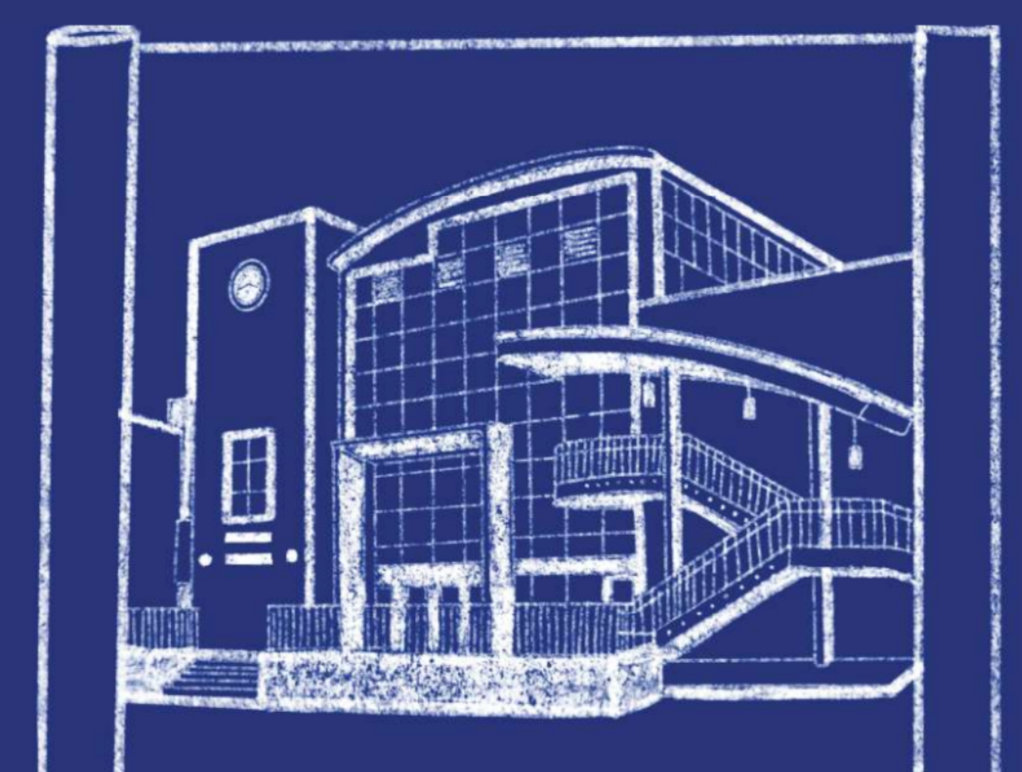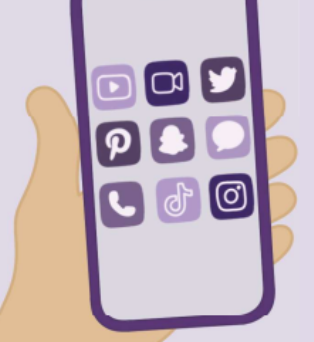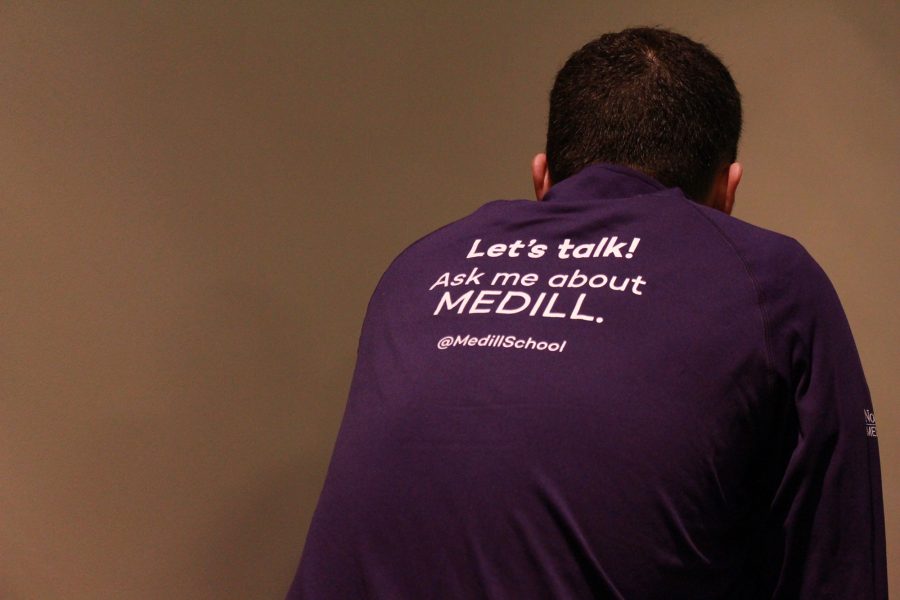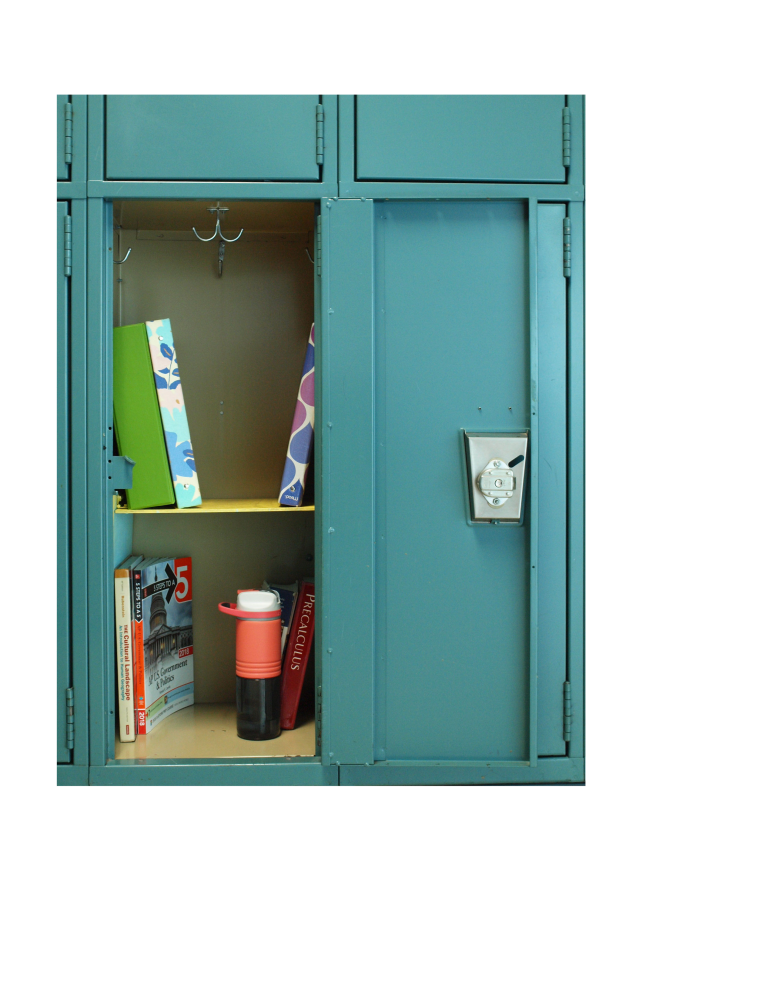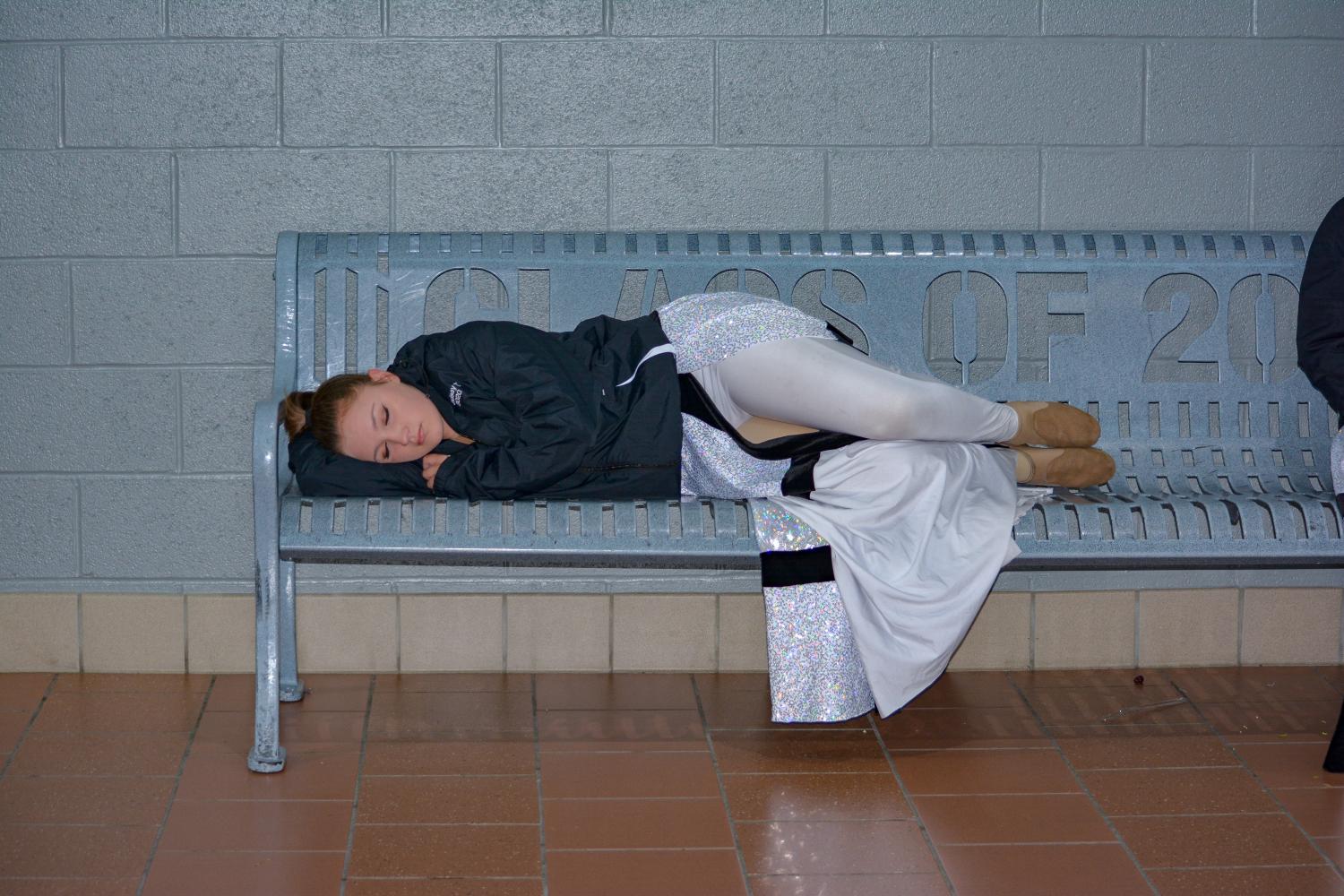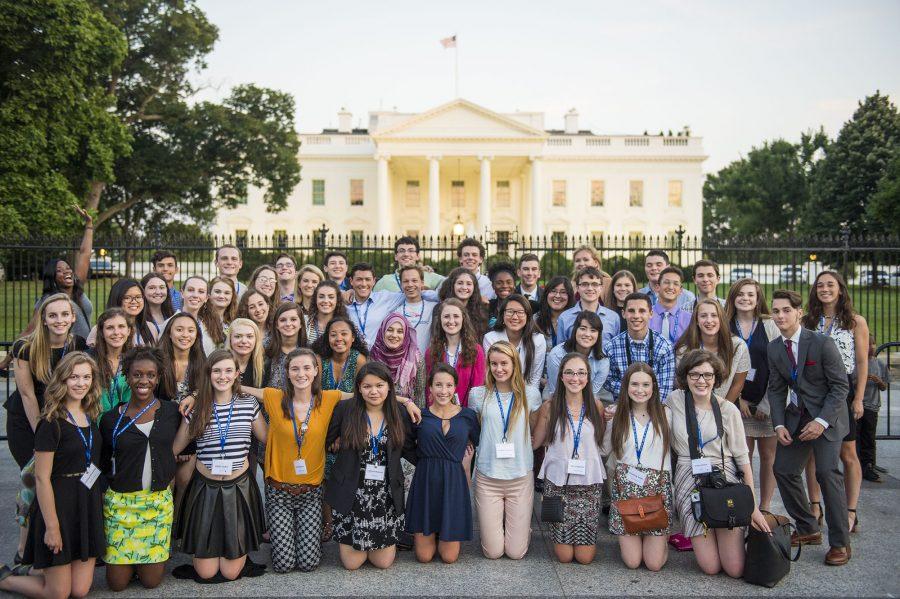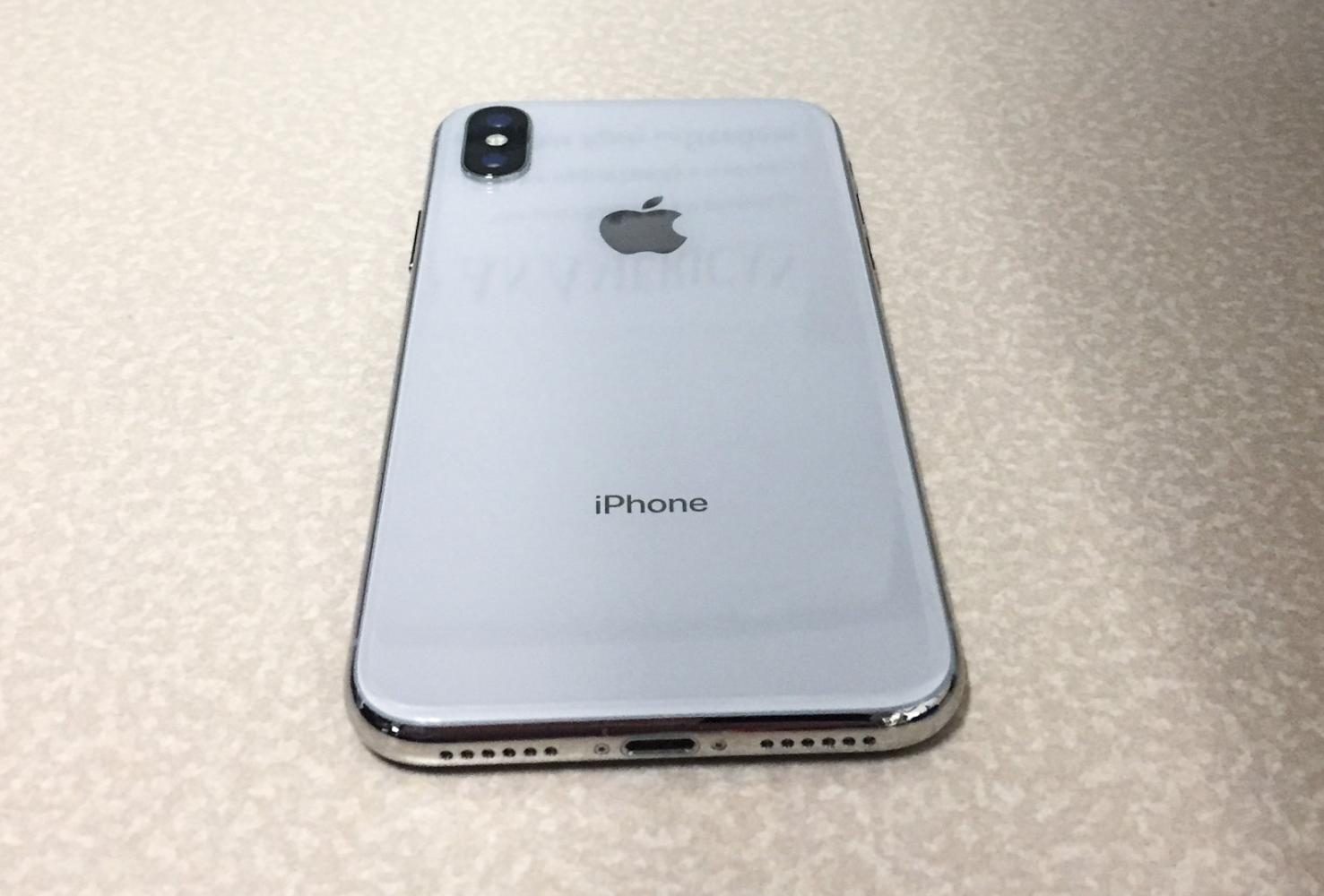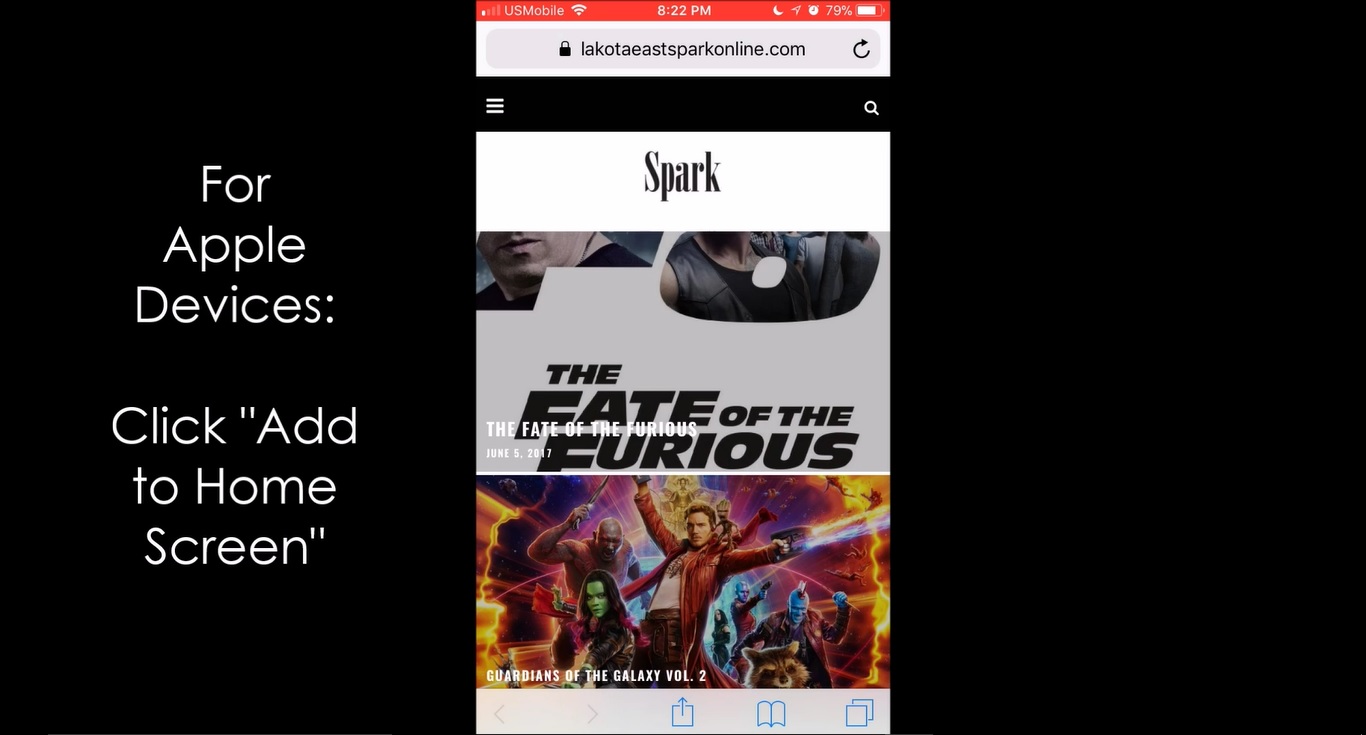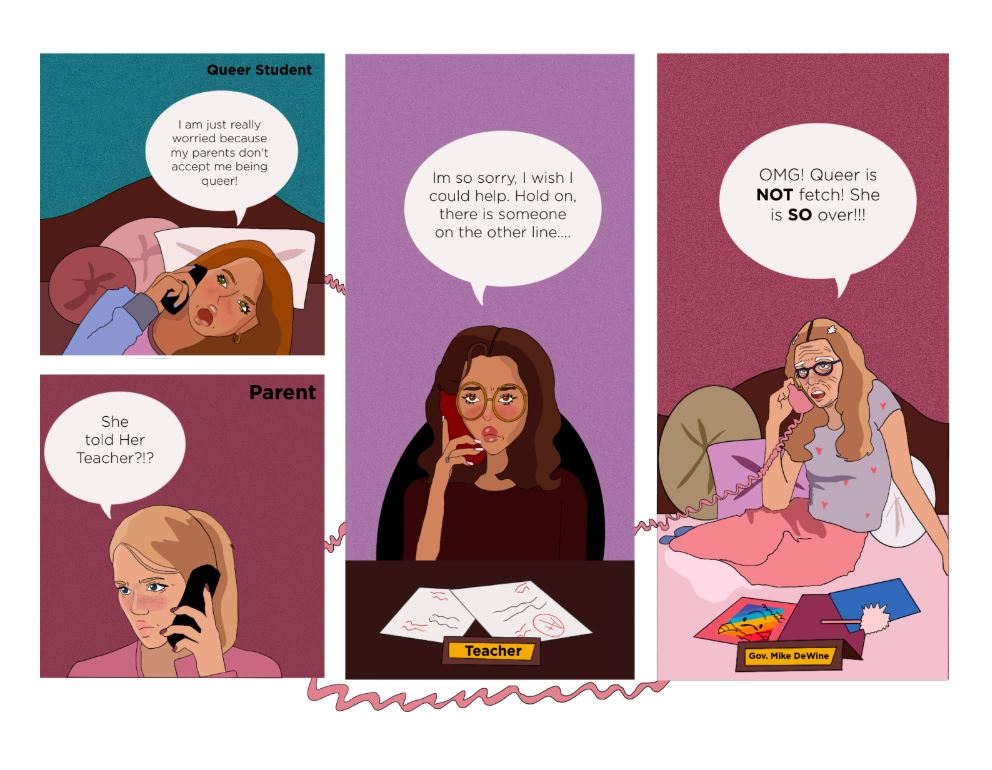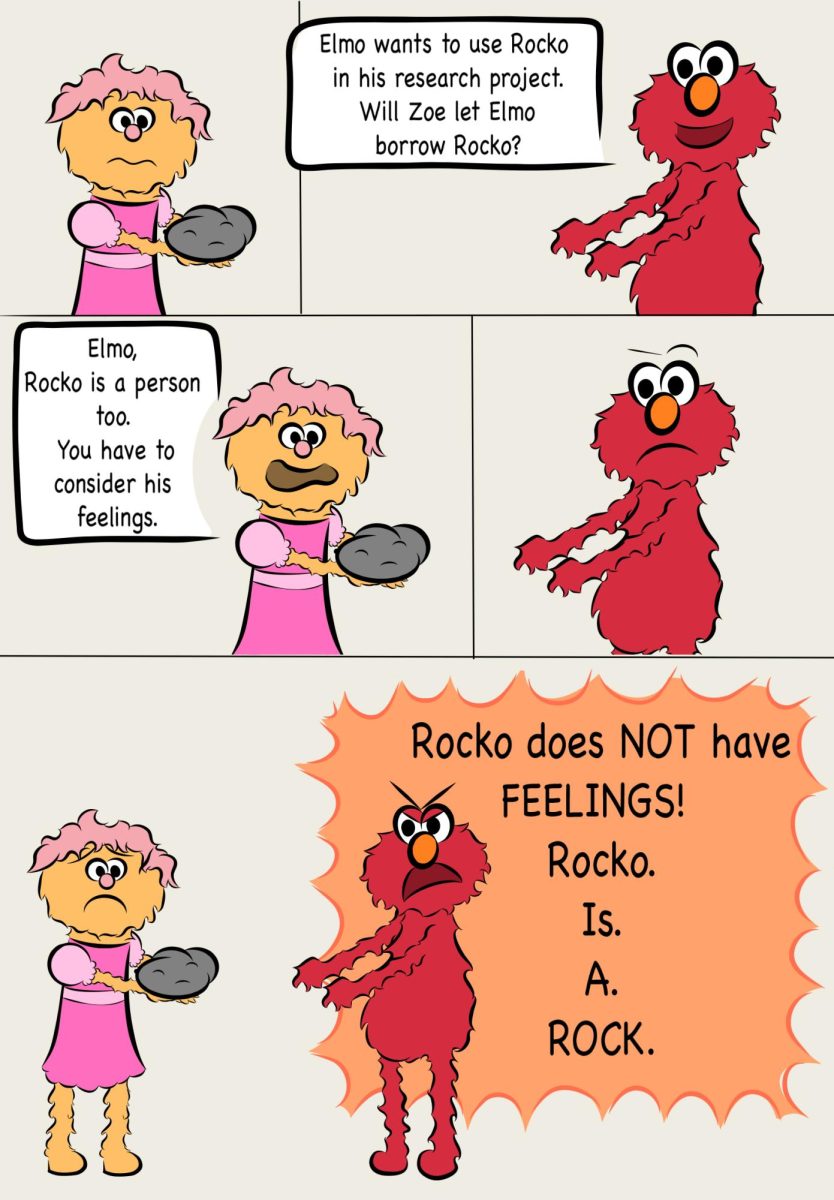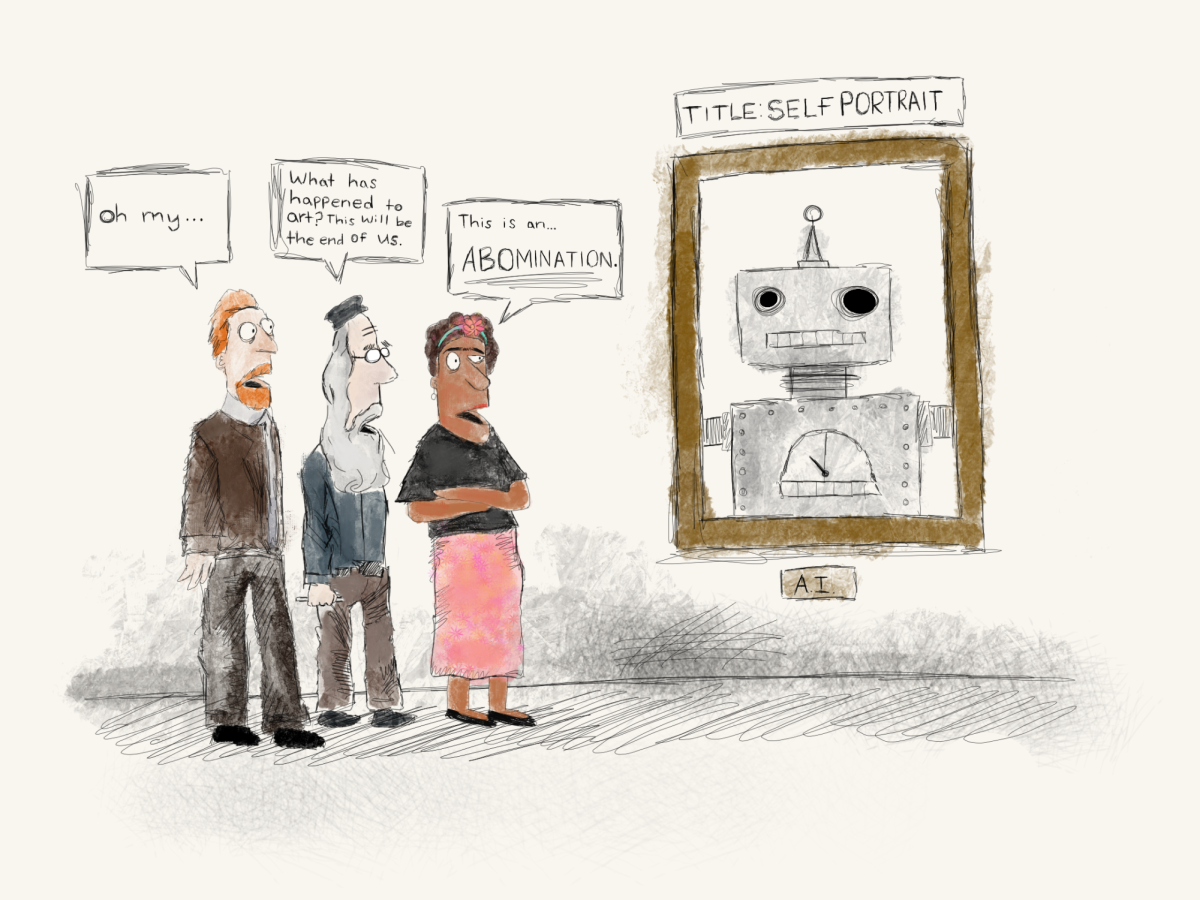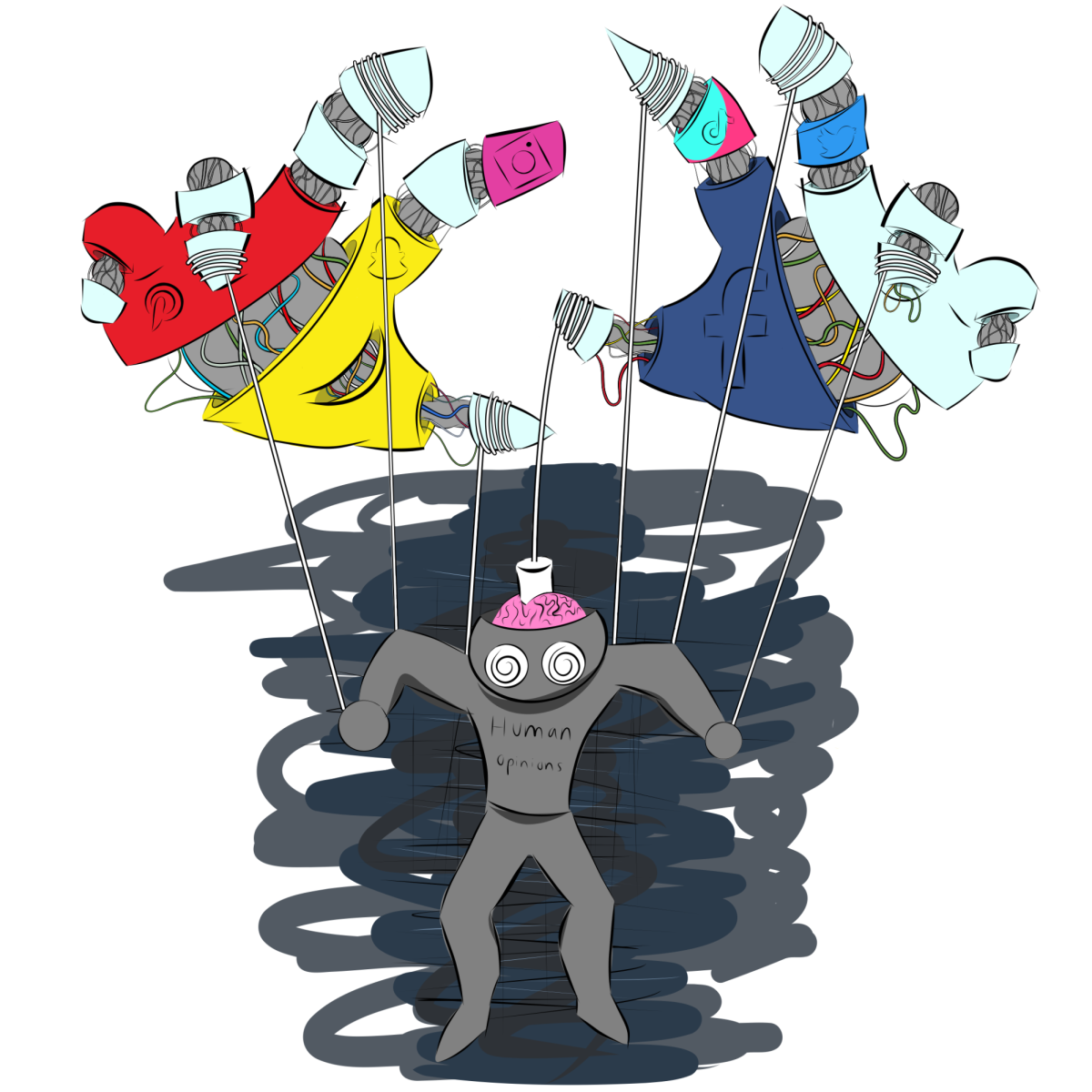story by michael szczepkowski | art by mckenna lewis
Technology is everywhere. From our phones to our computers and even our fridges, everything seems to be “smart” and connected to the internet. There is one place though that an increase in technology shouldn’t be occurring. Children in schools, such as Hopewell Junior and Liberty Junior, should not be increasingly exposed to technology and due to the exposure they already have, they suffer.
The whole purpose of educational technology is to aid students in their learning and growth. Unfortunately, the school’s use of technology simply isn’t doing that.
According to the Pew Research Center, over eight percent of teens admit to often losing focus in school due to their own cell phones. Now, it does not take much to look around East and realize that the number is most likely skewed. Teens are constantly on their phones playing games, snapping, and texting. There is no reason as to why handing a computer to a student would have a different result than that of a phone.
When children go off to school, we want them to return home as happy and as healthy as when they left, but as many doctors will say, technology poses a risk to that hope. A study conducted by Cincinnati Children’s Hospital had a group of 19 children and their parents filled out a questionnaire on how long their children spent reading opposed to how much time they spent on “screen‐based media time, including smartphones, tablets, desktop or laptop computers and television.”
The results aren’t shocking and in fact they should be expected. According to a report by Program Director of the Reading and Literacy Discovery Center Tzipi Horowitz-Kraus and Pediatrician John Huttonn, “time spent reading was positively correlated with higher functional connectivity between the [tested] area and left‐sided language, visual and cognitive control regions. In contrast, screen time was related to lower connectivity between the seed area and regions related to language and cognitive control.”
Of course, not thinking about children’s learning methods is a mistake. By having kids write on paper with pencils and pens, it slows them down and lets them fully process what they are learning. On average, people type at around 30-40 words per minute and that’s great for things like paper writing and general research.
Due to the rapidity of typing notes, lectures will often be taken verbatim and in turn won’t be thought about as much. However, when children are forced to slow down in order to write paraphrased notes, they retain more information. They think about how to structure the note in order for it to make sense later which in turn solidifies the concept being learned in both the moment and at a future reference point.
Ultimately; even if all the negative effects of electronics on children’s health, ability to learn, and their ability to maintain focus are omitted, there’s one important reason as to why electronics won’t work in school’s. Logistics. Logistically speaking organizing a safe yet productive system is practically impossible and that’s blatantly obvious in class.
The amount of times I have seen a teacher or student struggling with the projector, Canvas, or an online textbook is uncountable. Even YouTube is basically inaccessible through school computers and district filters. It seems ironic for a school to hand out computers to students when the students and teachers aren’t trusted to use them to their fullest potential.
Our technology department is constantly running around the school fixing the most minutiae of issues. Time is taken away from education to fix the item that is supposed to be speeding the educational process up.
Not only is time taken up, but children are put at risk from the school handing out technology. About a year ago, one of Lakota’s partners experienced a security breach. Butler Tech was hacked as a result of a malicious email that quickly spread it’s virus across servers and resulted in the grinding halt of any class that was run by Butler Tech. That issue has yet to happen to a Lakota school, but if a teacher is susceptible to such an email, students are as well. Especially now that computers are being handed out to all junior high students.
Technology is a wonderful tool when used in a correct and efficient manner. Unfortunately, like a jack hammer, the extent to which we use technology should be unheard of in school. It poses a security risk and a health risk. Most importantly it’s shown to actively impede the brain in its development, the very thing it promises to improve. Technology does not belong in school.


